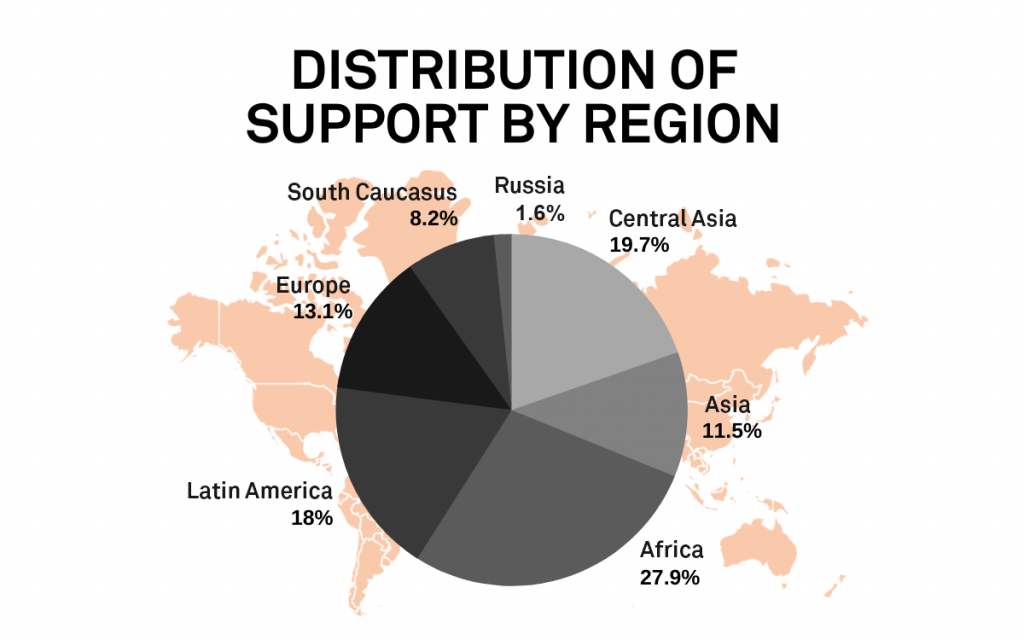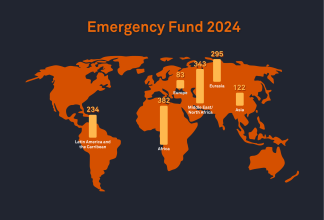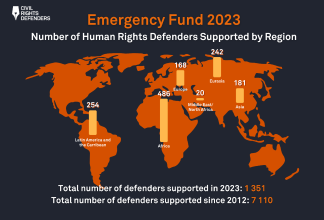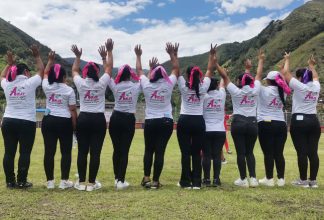Emergency Fund – 2019 in Numbers

Promoting and protecting civil and political rights has never been free of risk. Under pretense of national security, public order, or morals, repressive regimes may intensify their efforts to silence those who dare challenge their power. If the situation deteriorates, being able to react quickly in the event of a security crisis can mark the difference between life and death for human rights defenders at risk.
This is the purpose of our Emergency Fund – to provide rapid assistance to human rights defenders at risk. We aim to protect human rights defenders from both immediate danger and long-term risks associated with their work and enable them to continue their tireless and important efforts to hold power accountable. In 2019, 92% of all grantees were able to continue their work after receiving support.
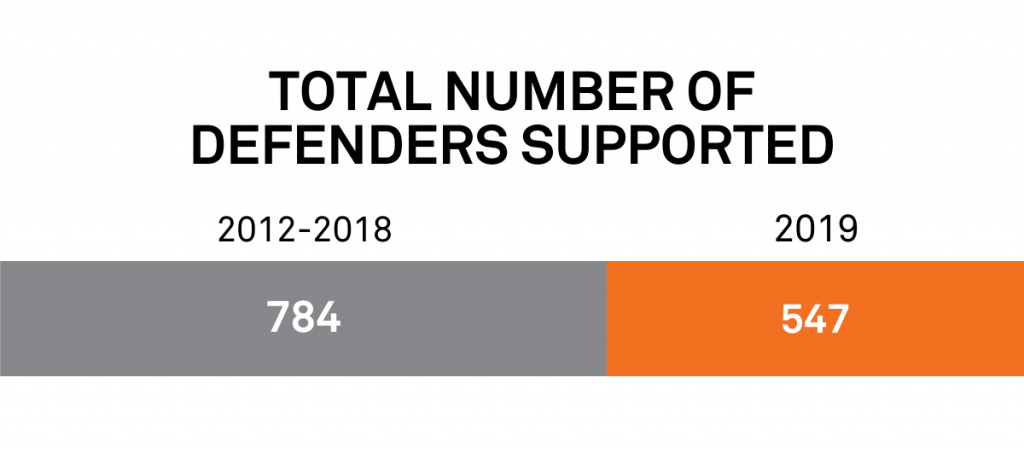
“Thanks to the emergency grant provided by Civil Rights Defenders, I was able to relocate. It made a huge difference in my life. I am feeling safe, and I have the possibility to keep working” said Angela Maldonado, a recipient of emergency support in 2019, who is now able to continue working for the future of younger generations – and for the future of the Amazon – in Colombia.
Angela Maldonado is one of the 547 human rights defenders who received Emergency Fund support in 2019. More than 1 in 3 measures provided by the Emergency Fund in 2019 were physical security improvements, followed by combined interventions and temporary relocation. The Fund also provides legal aid, medical support, and humanitarian assistance.
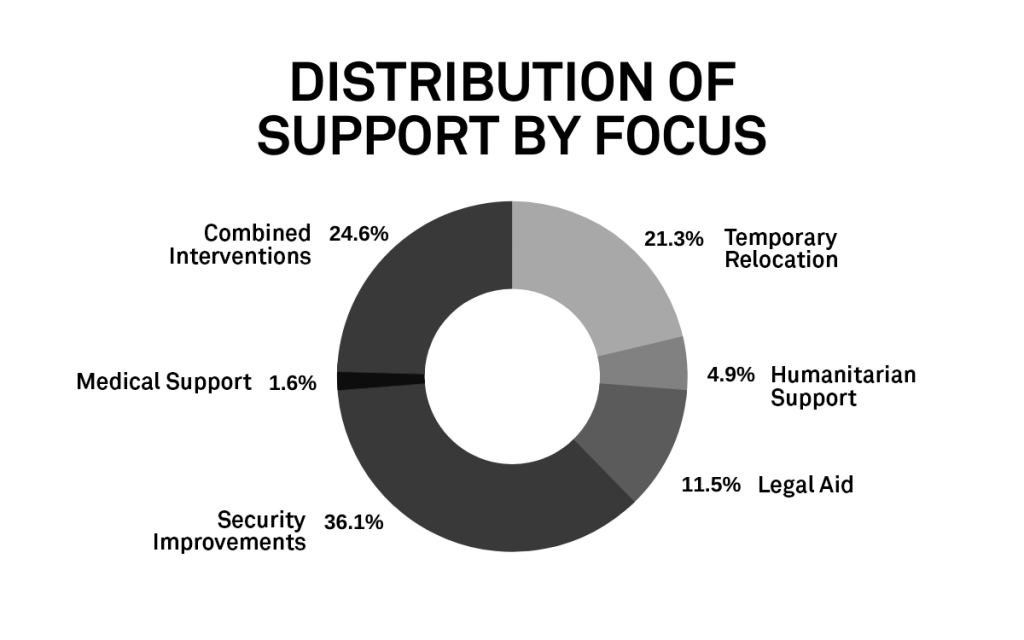
The support can be used to cover legal fees after arrests or court proceedings, support to imprisoned human rights defenders, or support to seek international protection. But support can also be granted for preventive security measures, such as CCTV cameras, security doors, assault alarms, digital security measures, professional assessments, security training, and psychosocial support. Temporary relocation is an important last resort for human rights defenders at risk, who have exhausted all other options.
A key focus to achieve long-term sustainability is on preventive measures designed to avert the types of acute emergency situations that may generate the need for physical relocation. This is reflected in the statistics for the different types of support provided in 2019, with security improvements making up around a third of the total interventions, followed by combined interventions and temporary relocations.
We seek to have a fair and balanced gender distribution in the provision of support, proportional to the needs of applicants. This includes raising awareness of the emergency mechanism among women human rights defenders in our partner networks, advocacy against preferential treatment or discrimination on the basis of gender, facilitation of cooperation and partnerships with local women’s rights organisations and LGBT+ networks, and striving toward a balanced gender representation within our organisation. In 2019, 55% of all grantees were men, while 44% were women and 1% other.
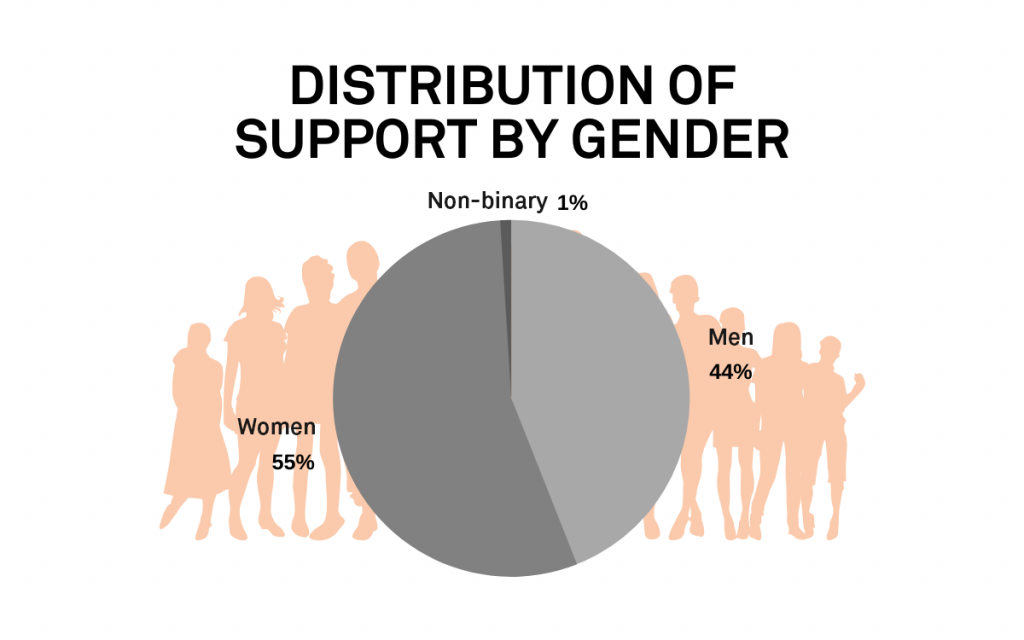
Adding gender sensitivity and analysis to the emergency support mechanism is vital in ensuring a fair and equal distribution of support. During 2019, Civil Rights Defenders worked together with a gender consultant in order to gain deeper knowledge and capacity in this area. As an important element of these efforts, we stress the importance of recognising the equal validity of so-called “soft” security issues as conventional “hard” security measures, such as the installation of security doors, CCTV cameras, and alarm systems. The former may include, for example, psychosocial assistance and counseling, and family-related support – which we have seen is more typically requested by non-binary and women human rights defenders.
Applications are reviewed by Civil Rights Defenders in collaboration with our local partners, who help us assess the needs of applicants, and evaluate the veracity of the cases we receive. In 2019, grants were distributed to defenders in 23 countries, including Brazil, Cambodia, Kenya, Myanmar, Tajikistan, Venezuela, Uganda, and Ukraine. The principal regions receiving aid in 2019 were Africa and Central Asia, followed by Latin America and Europe.
